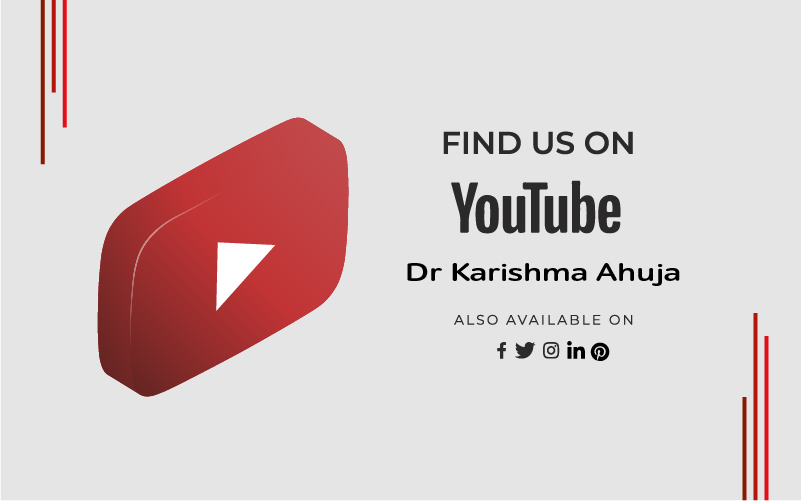Our daily habits largely influence how we feel, how we react and how we go about managing our lives. Our state of mind is a made up of the daily choices we make and we have the power to make small decisions every day to benefit our mental and emotional wellbeing.
Just like we give importance to our physical health, in the same manner, our mental health should be given the importance it deserves. Because whatever is going on in the mind will eventually express itself in the body. If the mind is healthy, the body will also continue functioning the way it is supposed to, for our health and wellbeing. The more we cultivate positive, healthy habits for our mental wellbeing, the more we will nurture a sense of resilience, peace, clarity and strength to discharge our duties, fulfil our responsibilities and achieve our goals. Mental Health is all about learning how to make empowering choices every day so you can feel your best and thus give your best to everything.
Incorporate some of these mental wellbeing practices into your daily routine to nurture your mind, energize your thoughts and elevate your spirit.
1. Meditate – Go within to disconnect from the Outside world
A regular meditation practice can have profound effects on our physical and mental health. Studies show that people with a consistent meditation practice are less likely to react with negative thoughts or have unhealthy emotional reactions in times of stress. Meditation allows you to better manage your emotions and clear your energy of negativity. Meditation doesn’t have to be long or complicated. As
little as 10 to 15 minutes twice a day spent in silence, being conscious of your breath can make a huge difference to your mood and state of mind.
If you find sitting in Silence by yourself discomforting, then try Guided meditations. They can help you stay focused more easily as you simply have to follow the instructions being given to you in the meditation practice. They can help calm your mind and release tension from your body. If you are just beginning your meditation journey or have difficulty focusing, you can even try shorter meditations, those that last for 5 to 7 minutes. For best results, schedule a specific time for your mediation practice in the day and ensure you stick to it no matter how busy you are. Your silent sitting and meditation time is as important as your meals for the day. It cannot be skipped.
2. Connect, Acknowledge, Accept your deeper needs and feelings
Are you aware of your deeper needs? Do you know what’s going on inside you? Our moods and emotions are ever-changing. How often do we take the time to check in with ourselves and find out what is really bothering us and why? When we pause and allow ourselves to be present with what we are experiencing at any given moment, it enables us to put a name to our emotions and feel them fully. When we take the time to feel our feelings instead of avoiding or ignoring them, we release resistance held for them. We allow them to move through us instead of staying stuck within us, creating space for better thoughts and positive feelings about ourselves and our lives.
Next time you experience limiting emotions or unpleasant thoughts, place one hand on your heart and the other on your navel in stomach area. Take a moment to identify the emotion you are feeling and remind yourself, you are willing to release it. Smile as you keep repeating, “I am ready to let this go.” Then ask yourself what is it that makes you happy. One by one, allow thoughts of happiness to come to your mind. You will feel much better than before. In Silence, You will also get thoughts about what you could do to resolve your problems. Make it a habit to check in with yourself in the day on how you are doing so you can overcome difficult emotions the moment they arise and care for your needs at the right time, just the way a parent attends to and cares for their child.
3. Keep your body active
Mind and body are deeply connected. Physical activity stimulates various brain chemicals that leave you feeling happier, more relaxed and less anxious. Any tightness or lethargy in the body can affect your ability to manage emotions and even lead to dullness of the mind. Regular movement helps release endorphins to provide us with a boost of feel good chemicals. Endorphins cause the release of dopamine, which can positively impact our mood and energy. In short, Staying physically active can improve our mental health and boost your emotional wellbeing.
Daily movement of the body does not have to be a very strenuous workout. You just have to do something that keeps you active and at the same time feels fun and fulfilling to you. This could mean doing yoga, going for a walk, dancing and so on. Inorder to stay motivated to keep yourself physically active, choose an activity that you look forward to and make it a goal to move your body as often as you can. Doing this daily will have positive effects on your mind. It will reduce the mental chatter in your head and leave you with more enthusiasm, peace and mental clarity. If you have a desk job and spend most of your work hours sitting, with little physical movement, consciously try to get up and sit down a few times every couple of hours and take the stairs instead of the elevator to get to and get out from work.
4. Speak Positive words
Words are energy. Whatever you speak, you activate in your vibration and whatever is in your vibration, you Attract into your life. Your Subconscious mind creates pictures out of the thoughts and words you repeatedly use. The stronger the mental picture, the more powerful will be its manifestation in your life. If you want to receive good things, you gave to feed your mind the right words for it to develop positive mental vision.
Positive words can improve your psychological and mental wellbeing as well as place you in a positive state of mind and attitude. They can help you vibrate with and thus attract desired, good things in your life. They also help you manage your emotions in stressful times. When used consistently they will change your old negative thinking of fear, lack and limitation. Here is a powerful way to get started. If you are stressed, don’t speak about what you don’t want. Don’t use words like, ‘I am scared, I don’t know what will happen, what if something goes wrong.’ This will put your mind and body under more pressure (your body cells will react to your negative words and immediately put you in a fear based, negative vibration). Instead, at such stressful times, speak positive words like, “All is well, everything will work out for my good, I am safe.” You will raise your vibration. You will start to feel better and your subconscious mind will start working to match your reality with your positive words and vibration.
Love and Joy to you
Dr Karishma Ahuja
Have you checked out details of our Train The Trainer Certification Programs They will not only help you in understanding how your mind works, they will provide you with powerful tools to share this knowledge with others and guide your clients to achieve their results faster.
About Dr Karishma Ahuja
Dr. Karishma Ahuja is a leading Life Coach, known for her expertise in the Topics of Metaphysics, Manifestation and Forgiveness- inner child therapy. She is the author of two self-help books, The Healing Power of Gratitude and The Healing Power of Words. Dr Ahuja has a weekly column in the Hindustan Times and regularly shares her inputs for success on her Blog and other online portals like Midday, Tax Guru, Entrepreneur India.
Daily habits to improve your Mental Health Click To Tweet





Leave a Reply